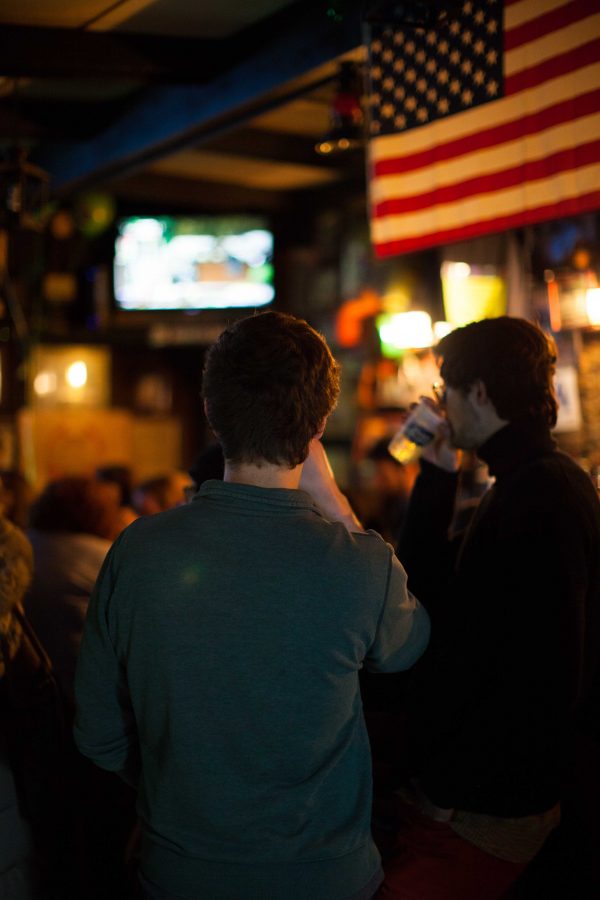Dear Editor,
As sexual assault on college campuses has made its way to the forefront of national concern in the past year, educational institutions across America are in the midst of a complete overhaul of traditional systems for the reporting and prosecuting of assault. Concern for the correction of these processes, however, often overshadows an equally crucial facet of survivor rehabilitation: confidentiality and the response etiquette of allies.
There is no better example of this oversight than The Fordham Ram’s article covering the Carry That Weight Day of Action in Oct. 2014.
At the event in question, a number of survivors gathered with the intention of discussing our experiences as survivors and what we need from allies. Student allies also spoke about why their allyship is important. For many survivors, the choice to speak was predicated almost entirely on the enthusiastic support of the others gathered there. While it was an open event on the McGinley lawn, most people who were not participating walked by without stopping to hear what was said. Several passersby did not even know what was happening.
A subsequent article published in The Fordham Ram on Nov. 5 featured coverage of this event, naming some of those who spoke and including passages from their speeches. The journalist, however, did not expend the very minimal energy it would require to receive approval from the speakers, nor did he quote their speeches accurately.
Once Women’s Empowerment contacted The Fordham Ram, objecting to the naming without permission and misquoting of survivors, the article’s online version was edited to remove the names of survivors. In a following edition of The Fordham Ram, a blurb was published, apologizing not for the breach of journalistic trust of those who had spoken, but for the fact that people had been hurt.
That students should expect a modicum of confidentiality and ethical journalism, especially from a university-run newspaper catering to their interests, should not come as a surprise.
Nor should this have been the object of The Fordham Ram’s apology, which falls far too short of accepting blame for their actions, but instead continues to place responsibility on survivors for their feelings.
While we understand that the Rape Shield Law of the 1994 Violence against Women Act does not necessitate confidentiality for those speaking in public spaces, we refuse to accept The Fordham Ram’s actions as ethical.
While we appreciate that The Fordham Ram was attempting to bring visibility to the speak out, and to survivors as a whole, the way in which it was done was counterproductive to this goal.
I, Colin Dobell, am one of the people who was named in this article. I include my name now, of my own volition, because I want to control my own story. Having been initially stripped of my agency during unwanted sexual contact, and subsequently stripped of my agency by The Fordham Ram’s shameful reporting, I want to be the one who chooses that my name be published.
The first time I had spoken to anyone besides one or two friends about my experience in June 2014 was the previous night at a Women’s Empowerment meeting, where I had felt supported by allies and fellow survivors. At the speak out, I had felt compelled to speak, but did not know what to say.
The event’s organizer gave me a list of statistics to read. I was incoherent as I read them, more concentrating on my internal debate about speaking publicly about what happened to me. A writer from The Fordham Ram asked me if he could include my name in the article. I had not minded being quoted in the paper in the context of discussing statistics.
After listening to several members of the Fordham community speak about their experiences or their allyship, I chose to speak and tell my story of how a guy with whom I had been on a date had sexually assaulted me; how after I had left, he had offered me money to come back; and how I was, and still am, seriously affected by this encounter in my ability to be intimate with partners.
I do not normally read The Fordham Ram. I found out through other members of Women’s Empowerment that I, along with two other survivors, had been named and quoted, but not as someone who read statistics. Instead, what I had said at the end of my second time with the microphone, when I had shared my personal experiences, was written in the newspaper: “I am in shock and the smell sits in my nose, it still sits in my nose.”
The article has since been edited. The version that is now online does not include my name, but had initially, as did the printed copies. The other named survivors had not, in any context, been consulted on the use of their names.
It took several months to feel comfortable again speaking publicly about what happened, hence the delay on this response.
I write this the day before the Take Back the Night Speak out, Take Back the Night and Day of Silence vigil, hoping that tomorrow, those who speak out will do so feeling confident that as they speak out, they are the ones telling their story.
— Colin Dobell and Eilís Russell





































































































































































































